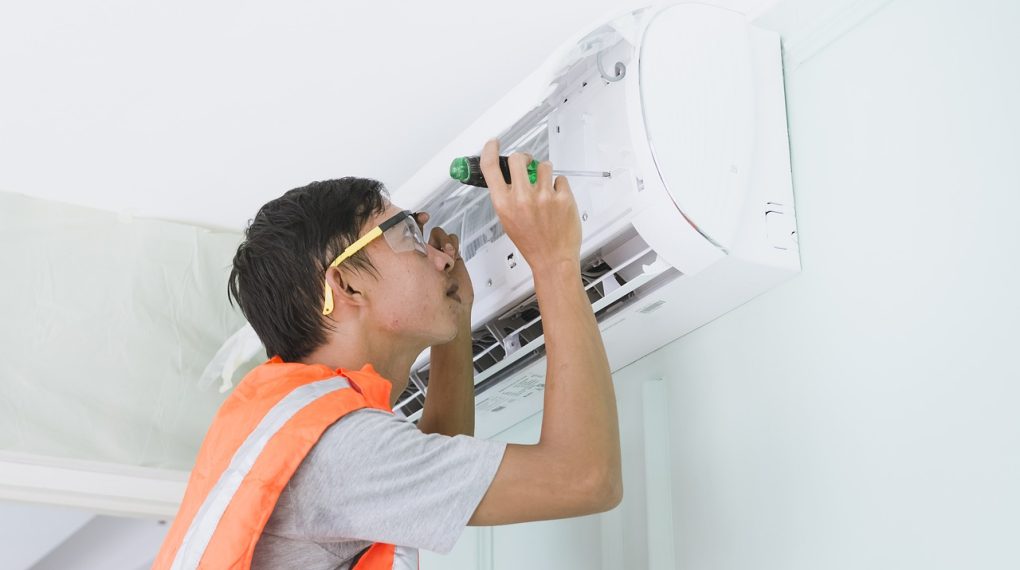AC compressor leaking water? It’s a headache no one wants to deal with, right? But hey, no sweat! This article will help you understand what’s happening and guide you on how to fix it.

Table of Contents
Brief Overview of AC Compressor Leaking Water
Imagine a hot summer day. You switch on your AC for some cool comfort, and what do you see? A puddle of water underneath! That’s your AC compressor leaking water. Now, why is that happening? It could be due to a couple of reasons like blocked air filters or a faulty condensate pump. But don’t worry. Identifying the problem is half the solution.
Common Causes of AC Compressor Leaking Water
So, the AC compressor’s acting up and causing a water leak. Bummer! But what could be causing this? Let’s put on our detective hats and look at some usual suspects.
Blocked or Dirty Air Filters
Imagine running a marathon while breathing through a straw. That’s how your AC feels with a blocked air filter. Not only does it cause your AC to work harder, but it can also lead to a buildup of ice that melts and appears as a water leak. Regular cleaning or replacing of air filters can save you from this mess.
Frozen Evaporator Coils
Ever seen a frosty metal sheet in your indoor AC unit? That’s the evaporator coil. When it gets too cold and freezes, the ice can melt and cause a water leak. Not a pretty sight!
Faulty Condensate Pump
The condensate pump is like your AC’s water management guy. It pumps out the water that your AC naturally produces. But if it’s broken? You guessed it, water starts pooling and you get a leak.
Blocked Condensate Drain Line
Just like the gutter system for a house, your AC has a condensate drain line. Its job is to carry away the condensate water. But if it gets clogged, water backs up, and hello, leakage!
Check out these other related articles…
Replacing AC Compressor Without Flushing in 4 Easy Steps
How to Drain AC Compressor in 5 Simple Steps
How to Flush AC Compressor in 4 Simple Steps
AC Compressor Blowing Cold Air: 4 Causes & Easy Solutions
AC Compressor Expansion Valve: A Detailed Guide
Effects of AC Compressor Leaking Water
A water leak might seem harmless, but it’s a slippery slope to a myriad of problems. Ready for a tour of the potential aftermath of a leaking AC compressor? Buckle up!
Reduced Cooling Efficiency
Water leaks might seem like a harmless issue, but it’s like a tip of an iceberg. It can mean your AC is not cooling efficiently. It’s like having a sports car but driving with the handbrake on.
Increased Energy Consumption
Did you notice a surge in your electricity bills recently? A water-leaking AC compressor could be the culprit. It’s like trying to fill a bucket with a hole. The AC has to work harder, gobbling more energy, just to maintain your desired temperature.
Potential Damage to Property
The danger isn’t just to your comfort or wallet, but also to your property. Ever seen what water can do to wood or paint? Trust me, it isn’t a pretty sight!
Solving AC Compressor Water Leaks
Now, onto the million-dollar question: how do we fix this water leak? Should you call a professional immediately, or can you do something about it first? Let’s look at a few options.
Regular Maintenance
Just like how your car needs regular servicing, so does your AC. Regular maintenance can help prevent many issues, including water leaks. It’s like keeping your AC in tip-top shape, ready to take on the heat without breaking a sweat (or leak!).
Proper Installation
If your AC isn’t installed correctly, it could lead to all kinds of problems, including water leakage. Think of it like trying to fit a square peg in a round hole. It just won’t work. So, it’s crucial to get a professional for the installation job.
Hiring a Professional
And finally, when in doubt, call the pros. Don’t hesitate to get an expert involved, especially when you’re dealing with electrical appliances. They can identify and fix the problem in no time. After all, they’re the AC whisperers, aren’t they?